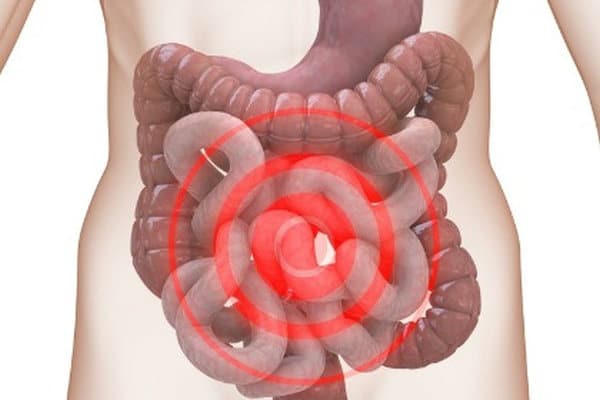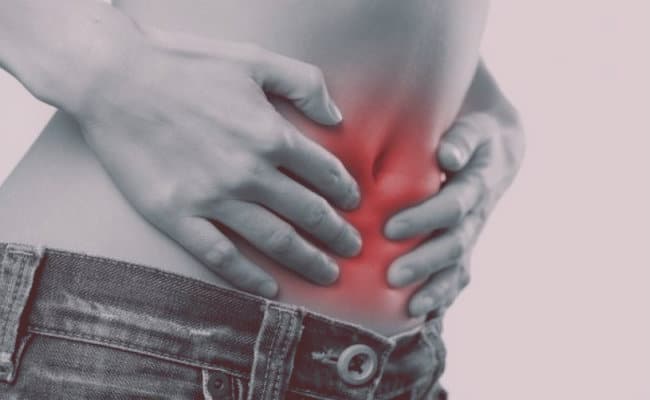We often see how some people suffer from intestinal disorders, apparently it is very common within the world population to have this type of suffering, we can attribute the responsibility to bad eating habits or the frequency with which these people attend the doctor.
Nervous colitis, meanwhile, is an intestinal disorder that directly affects the colon and intestine. This condition can be fatal if it is not treated with the necessary care and attention, that is why we wanted to dedicate an exclusive article to nervous colitis, what are the causes of its condition, symptoms, diagnosis and possible treatments.
What is nervous colitis?
It is an intestinal disease that directly affects the colon and intestines, also known as irritable bowel syndrome.
This is an inflammatory and very painful process that passes through the intestines directly affecting its function, the appearance of this disease can come with severe abdominal pain, dizziness and burning in the lower back, in turn, it changes the evacuation habits of the patient presenting diarrhea or constipation.
This disease can directly affect the person's lifestyle and self-esteem, there are stages of the disease in which the patient goes through moments of crisis and despair because they do not know how to stop the pain and symptoms of colitis.
In all cases, it is recommended that the patient visit the specialist frequently so that they no longer present symptoms or have a history of another disease of the digestive system; thus major consequences are prevented.
On the other hand, the patient suffering from nervous colitis must make a quick change in eating habits, since generally, poor diet is the cause that the colon and intestines of a delicate person suffer.
Some studies show that the population that suffers from nervous colitis presents some psychological agent that directly affects the digestive system of the person, such as depression, phobias and anxiety that are directly involved with the development of the disease.
In general, these patients call themselves negative qualities, this is due to the stress generated by suffering constant and inexhaustible pain, they may feel that they are the direct cause of the disease that in most cases arises from an allergy to some food or the same environmental factor that is intrinsic in nervous colitis.
The appearance of the disease also varies depending on the age of the patient and genetic factors, for example, in adults between 50 and 60 years of age, they tend to present this condition chronically but with less intensity of pain.
On the other hand, a young adult can suffer from intense pain thanks to gastric juices that do not allow the intestine to do its usual process.
Colitis can be fatal in children, since their pain threshold is very low, although there are very few cases registered worldwide.
What are the types of colitis?
- Nervous: It is directly associated with stress situations where the walls of the intestine contract, causing discomfort with the passage of gases and the movements of the digestive system.
- Ulcerative: This disease is chronic, it occurs with the appearance of ulcers within the walls of the intestine and colon, the inflammation appears from the rectum and spreads to the walls of the colon.
- Hemorrhagic: this type of colitis is caused by a bacteria called Escherichia Coli
- Toxic: occurs when ulcerative colitis becomes complicated
- Granulomatous: This is a very exclusive condition where the same auto immune system attacks the tissues of the intestine and colon, directly affecting them.
- Associated with the use of medications: extreme use of certain substances such as vitamins C, non-steroidal anti-inflammatory drugs, or iron supplements can cause chronic colitis.

Why does nervous colitis develop?
There are various factors that are involved in the development of this disease that can be caused by strong periods of stress, the genetic factor also influences whether a relative has suffered from this disease before, it can mean the origin of the other's condition.
Patients who suffer from this disease have a very poor immune system, perhaps this factor is the cause or consequence of the disease itself, the conclusion on this issue has not yet been raised, but it is present in every patient who has nervous colitis .
The environmental factor is the most influential in the development of the disease and the one that goes unnoticed in the diagnosis of it, environmental pollution, tobacco smoke and poor hygiene can contribute to its development.
Diagnosis
The diagnosis must be based on several symptoms since there are multifunctional factors that directly influence the appearance of colitis, in turn, flexible criteria must be used to determine an accurate diagnosis of the patient's disease.
Symptoms of the disease can be observed such as pain to evacuate, abdominal pain, colic and severe cramps, abdominal distention, flatulence, gas, sensation of incomplete evacuation, evacuations with mucus and urgent evacuations.
In the same vein, men and women have different symptoms, the presence of rectal mucus may be different depending on the sex of the person, also abdominal distention and the sensation of incomplete evacuation can be much more serious in women than in men.
On the other hand, the style and quality of life directly influence the diagnosis of the patient, the happiness and satisfaction that the person feels about himself will determine the development of the disease.
This type of disease limits the life of the patient emotionally, sexually, mentally and socially; some people lose their social skills thanks to their condition, which sometimes limits their travel to certain places or can make them have a hard time in public.

Main causes
There are many causative factors of the disease, as we have mentioned before, nervous colitis can be caused by high levels of stress, environmental factors or psychological factors.
That is why multiple triggers of the disease have been mentioned:
- Drastic changes in the patient's habits that cause stress and pain.
- Family problems
- Labor disputes
- Sentimental conflicts
- Presence of financial difficulties
- Non-prescription drug abuse
- Unstable psychological states such as depression, anxiety, fear, frustration, low self-esteem, panic.
There are in turn different theories that give a possible concept to the direct causes of nervous colitis, among them we have:
Visceral hypersensitivity
There are several studies that show that patients suffering from nervous colitis have a direct reaction to visceral stimuli that the rest of the population does not have.
The pain caused by constipation and abdominal burning can be felt by the spinal cord projecting the pain onto the tonsils and hypothalamus of these people.
The visceral axis is affected by the patient's hypersensitivity to certain stimuli that are symptoms of the disease.
Psychological factors
More than 50% of patients who suffer from it show psychological problems, these become the direct cause of the disease.
It can be seen how the children of these people have symptoms similar to those of their parents, all due to the child's exposure to the chronic disease of their parents strongly linked to the psychological imbalance that this presents.
In turn, the same psychological factors can prevent the patient from going to the specialist, either out of shame or fear.
On the other hand, the inflammation of the intestinal wall is directly involved with the causes of nervous colitis.
Symptom
The symptoms of this disease are multiple and vary depending on the type of colitis, however they can be observed in all types of conditions:
- Diarrhea
- Abdominal pain
- Rectal bleeding
- Rectal mucus
- Colic
- Constipation
- Gases
- Burning in the walls of the colon and intestines
- Burning in rectum
- Pushing sensation
- Severe headaches
- Fever
- Weight loss
- Loss of appetite
- Fatigue
- Anemia
- Dehydration
- Nausea
- Sores in the mouth
- Bumps on the skin
Consequences
Although this factor is much more dangerous if it is not treated in time, the consequences of nervous colitis can vary on a scale of severity depending on the patient and the care they take with their health, poorly treated colitis can be fatal or just not treated.
For this, the patient must undergo long periods of research on the medical solutions that this disease has, thus it can prevent the consequences of it from becoming an ordeal.
First of all, in patients with psychological disorders who suffer from nervous colitis, they tend to lose their social and family life by not knowing about carrying the disease.
On the other hand, the appearance of it can perforate the walls of the intestine, causing severe bleeding and even death.
In all cases, it is of the utmost importance that the patient avoid self-medicating and attend the doctor unconditionally, his illness may require surgical intervention or much more specialized care.
Treatments
There are various treatments to treat the different levels of severity of nervous colitis and adapting to the type of patients:
- Relaxation techniques: this type of treatment includes the relaxation of the patient's muscles. Mindfulness has been of great help for people who suffer from it.
- Behavioral therapies: it works at a psychological level according to the emotions of the person with respect to the disease, it is used to manage stress levels and reduce them frequently until ridding the person of psychological conditioning factors.

Medicines to treat colitis
There is no medicine that completely cures colitis, there are only treatments that help relieve inflammation and symptoms of the disease. Today three types of medications are used to treat colitis:
- The amino salicylates: They have anti-inflammatory powers, the drugs classified as such are mesalamine, mesalazine and sulfazalazine. The effect of the drug is topical, that is, it only needs to come into contact with the mucosa to take effect. This type of medication is composed of aspirin and can be found in the market as Canasar, Pentasar, Colazar.
- Corticosteroids: This type of medication is used to treat the disease in the short term, they reduce pain effectively; however, their use must be managed by a specialist because they tend to produce side effects and not all patients tolerate them. These are implemented when the amino salicylates are not efficient enough for the patient's pain.
- Immune regulators: These are administered orally, they are prescribed when none of the above described are effective.
Consuming multivitamins will also help improve the mood of the patient.
What kind of food should I eat?
If you are a patient suffering from nervous colitis, you should choose to consume foods rich in water, vegetable fruits and grains that are ideal to reduce intestinal pain.
You should also avoid eating red meat which becomes heavy on the digestive system and can be a cause of constipation.
You can choose to consume protein from fish and shellfish, of course, consulting the specialist beforehand to avoid any pain caused by eating.
What foods prevent colitis?
If you are a person who wants to prevent future digestive diseases, you can consume the following foods:
- Prunes: they are a very good source of fiber, drinking one or two glasses of water with prunes will help prevent colitis.
- Apple: they have a high content of antioxidants that help prevent constipation.
- Prebiotics: this term refers to non-absorbable carbohydrates, which benefit the action of Probiotics by preventing constipation.
- Omega 3: Consume fish oil, flaxseed, canola or soybean oil that have anti-inflammatory properties
- Aloe vera: helps reduce the chances of developing irritable bowel syndrome. If you can consume aloe vera softgels or natural juices, avoid those that are packaged as they add high sugar content to their composition.
What kinds of foods should I avoid?
The person who suffers from colitis should avoid consuming spicy foods, with many colorants, highly processed, with chemical supplements, dairy, red meat, citrus fruits and all kinds of food that prevent the colon from resting.
Definitively eliminate the following foods from your diet: alcohol, coffee, green tea, black tea, beans, broccoli, cauliflower, Brussels sprouts, cabbage, garlic, onion, fatty sausages, fast foods, fried foods, chocolates, popcorn, nuts and sugar.
What habits should I implement?
You should try to visit the doctor frequently, and take care of work habits that are highly stressful.
Consider lowering your workload based on your stress tolerance level and your medical needs. Remember that your health is the most important thing and therefore you must ensure that you are in optimal condition.
Also ponder the possibilities of creating a daily habit of a few minutes for relaxation and concentration that will be very helpful in controlling pain levels.
Regarding eating habits, the patient should eat their food 5 to 6 times a day, eating in small portions is ideal to keep the digestive system in good condition and not to force it to do jobs that it cannot.